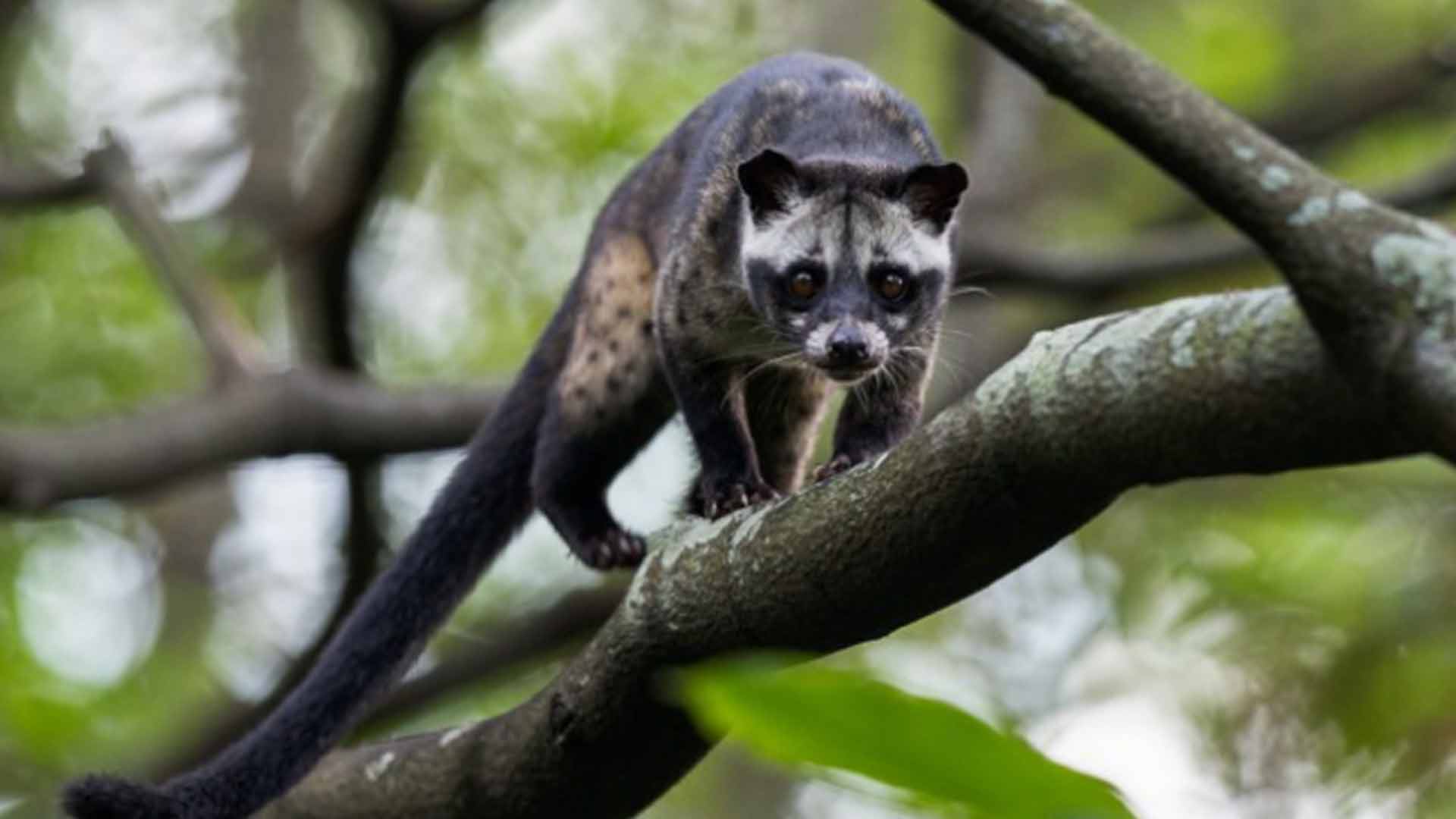By: AL- MARUF
An animal that smells like the rice of Polao is called Asian Palm Civet. They are so named because of their smell. In our country it is also known as Khatash.
Khatash or Asian Palm Civet is about to disappear from nature. Some people call this nocturnal animal as Bagdash, Bham or Bhambiral.
The head and body structure of Asian Palm Civet is long. Legs are short and thick. Body color is dark gray. It has yellow and brown color. Their body length including head is about 3 feet. The tail is about 2 feet. An adult Asian Palm Civet weighs between 9 and 10 kg. Their scent glands are very large in size. From this gland they emit a strong stench.
Asian Palm Civet prefers to live alone in a secluded environment. Sleeps in tree holes during the day. Usually come out late at night to hunt and gather food. This nocturnal animal is more comfortable roaming on land. Mark their territory by rubbing the ground with anal glands or anal glands while moving on the ground. Although it moves on the ground, it hides in the trees to escape from the prey and predators.
Asian Palm Civet is solitary, but males and females stay together during breeding. They meet for breeding throughout the year. Mating on the same tree for up to fifteen consecutive days. Anal glands emit special scents to signal each other to approach and mark their own territory. They give birth in October to December. Gives birth to 2-5 young each time. Newborn babies weigh 80 grams, which open their eyes at the age of eleven days. Children are guarded by parents simultaneously. The female Asian Palm Civet surrounds the young with its long tail. Then there is no fear of falling off the wall of their tail. The young are fertile at about one year of age. In captivity they live up to 22 years.
Old tree trunks are suitable places for their young to be born. In the absence of holes, they breed in gaps between tree branches, abandoned houses or brick kilns, rice husks and palm trees. Ma Khatash joins the tail with the body to form a circle. Chicks never go outside that circle.
They are not neglected by humans like other animals. Because they make valuable perfumes and coffee. Male and female Asian Palm Civet have anal glands that look like testicles under their tails.
This gland secretes a slippery musk substance called civet or civet oil or Asian Palm Civet oil. Many valuable perfumes are made from it. Viverra zibetha species found in the Indian subcontinent and Asiatic Asian Palm Civet are most commonly used for making perfumes.
Musk deer-like substances were once killed to make perfumes. Later, the method of extracting perfume ingredients by rubbing the glands of living animals was introduced. Although this method was widely used to stop cruelty to animals and later with the discovery of synthetic fragrances, Asian Palm Civet is no longer used.
Another wonderful use of them is to make the most expensive coffee in the world! Kopi Luwak (Kopi Luwak) expensive coffee in Indonesia is made by collecting coffee seeds from the feces of Asian Palm Civet. In England, a cup of Kopi Luak coffee costs 50 British pounds or 5,862 rupees. In the United States, the price of Luak copy per pound is 600 dollars or 49,958 rupees. Also, the price of a cup of coffee there is 30 dollars or 2,497 taka. Luak means Asian Palm Civet in the local language of Indonesia.
Commercially, these animals are caged to make coffee from their faeces. Then they are given coffee seeds to eat. The outer coating of coffee beans is digested by special enzymes in the stomach. Uncoated coffee seeds are then excreted in the feces. The seeds are then collected to make coffee while cleaning the excreta.
Although they are still found in sufficient numbers, their numbers are decreasing day by day due to the destruction of forests and wildlife. Being fruitful, they are considered nuisance to fruit growers. So they kill it too. Sometimes the animal is caught to trap for eating and selling the meat. Many also keep it at home to catch rats. As a result, the animal is deprived of its natural environment. Caging for coffee production is also depleting Asian Palm Civet from the wild. Some species and subspecies of Asian Palm Civet l on the island of Mintawai in Indonesia have become completely extinct due to the timber trade.
Village Kabirajas used to sell Asian Palm Civet oil for treatment in the market of village in our country. The oil of this animal was also used to treat itching in various countries. But it is no longer used as it is not useful in the treatment of itching. On the other hand, there is no scientific basis for the use of this animal in the medical field. As a result, the lives of many Asian Palm Civets have been endangered based on mere misconceptions.

